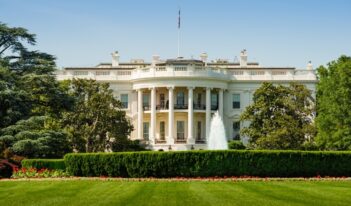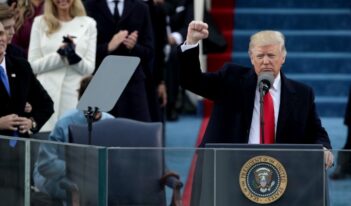
The upcoming Supreme Court case challenging the constitutionality of the CFPB highlights modern debates about independent agencies.
This term, the U.S. Supreme Court will consider whether the structure of the Consumer Financial Protection Bureau (CFPB) is constitutional. The CFPB is an independent agency led by a single director, whom the President can only fire for cause, rather than at will.
Independent agencies are insulated in some way from direct presidential control. They are thought to be distinct from executive agencies and have been said to “require absolute freedom from Executive interference.” Although independent agencies are part of the executive branch of government, they are not represented in the cabinet, and are not part of the Executive Office of the President.
The U.S. House of Representatives Committee on Financial Services once described the CFPB has having a “radical structure” and criticized what it considered the CFPB director’s lack of accountability to the executive branch and Congress. In defense of the CFPB, attorneys general from 23 states and the District of Columbia filed an amicus brief arguing that Congress’s grant of removal only for cause is constitutional.
The challenge to the CFPB’s structure is indeed a high-profile challenge to independent agencies, as administrative law scholars often debate issues related to agency independence.
Establishing Independent Agencies
- “When are agencies established with features that insulate them from direct presidential control?” In an essay in The Regulatory Review, the University of Notre Dame’s Patrick Corrigan and New York University School of Law’s Richard Revesz address the idea that independent agencies are more likely to arise under divided government. They assert, however, that control of the U.S. Senate rather than the U.S. House of Representatives drives the effect and find that Congress has been more likely to establish independent agencies with increasing representation in the Senate by the party not aligned with the President. Corrigan and Revesz argue their results “support a broad assertion of presidential power related to unsettled issues of agency control.”
Conceptualizing Independent Agencies
- In an essay in The Regulatory Review excerpted from a panel speech at the 2018 Federalist Society’s National Lawyer Convention, the University of Pennsylvania Carey Law School’s Cary Coglianese argues that a more accurate conceptualization of “independent” and “executive” agencies requires a focus on a spectrum of autonomy rather than formal structures. Coglianese argues that “administrative functions should be carried out in a neutral, expert manner that advances the public value choices that are reflected in law” rather than based on the political preferences of administrators. This neutrality requires varying degrees of administrative autonomy, he explains. Coglianese argues that “semi-autonomy recognizes that all agencies need autonomy—but it also allows for the possibility that the precise degree could, and should, vary.”
The President and Independent Agencies
- In a preliminary draft paper, Cass R. Sunstein and Adrian Vermeule of Harvard Law School survey the contours of presidential authority over independent agencies, asserting that, “to the extent that agencies are genuinely insulated from presidential oversight, there are serious constitutional questions.” But according to Sunstein and Vermeule, existing law—including the law that permits presidents to fire members of independent agencies for neglect of a legal duty—confers presidents with significant authority over independent agencies so as to dull the constitutional questions.
Executive Agencies and Independent Agencies
- Although a significant body of scholarship supports now-Justice Elana Kagan’s observation that the President seeks control over the executive branch, Bijal Shah of the Sandra Day O’Connor College of Law at Arizona State University asserts that scholarship has failed to account for forms of influence on the administrative state. In a forthcoming article in the Stanford Law Review, Shah analyzes litigation brought by the U.S. Department of Justice on behalf of executive agencies against independent agencies. This litigation, Shah demonstrates, can be a powerful tool of executive agency control over independent agencies.
Improving Independent Agencies
- In an article in the American University Law Review, Cary Coglianese of the University of Pennsylvania Carey Law School “builds on testimony before the U.S. Senate Committee on Homeland Security and Government Affairs Subcommittee on Regulatory Affairs and Federal Management” to suggest ways Congress can improve regulatory analysis conducted by independent federal agencies. After proposing several solutions, Coglianese concludes that Congress removing an exemption for independent agencies from the Unfunded Mandates Reform Act (UMRA) would appropriately balance “existing norms of independence” while not requiring “the development of significant new review capacity at OIRA.”
The Saturday Seminar is a weekly feature that aims to put into written form the kind of content that would be conveyed in a live seminar involving regulatory experts. Each week, The Regulatory Review publishes a brief overview of a selected regulatory topic and then distills recent research and scholarly writing on that topic.



